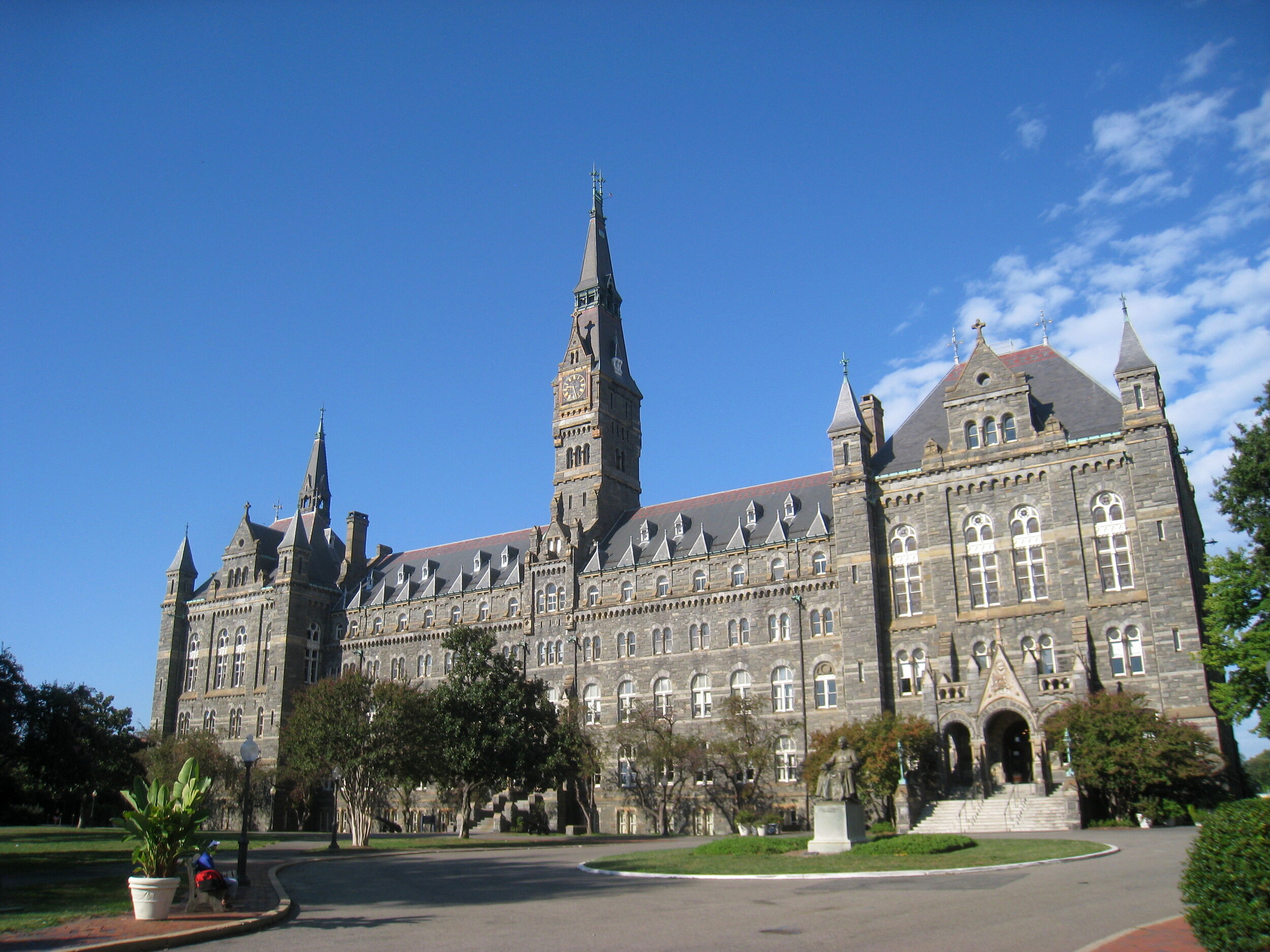A Letter From the Publisher
The Caravel was founded in Fall 2014 at Georgetown University. Other print organizations have existed on campus since the early 1900s. (Wikimedia Commons)
Dear Readers,
“This is tough love for the future,” a GUSA senator said regarding the proposed and extensive cuts to the Media Board’s budget, which would mainly affect student newspapers and print organizations. This pretentious, paternalistic, condescending statement made during a meeting of the GUSA Senate’s Finance and Appropriations Committee encapsulated an all-out attack on Georgetown’s print media. Demonstrating a hostility towards student media and ignorance of its importance and operation, senators on the committee voted to gut the Media Board’s budget, specifically targeting student printing. This latest move fits into a long-running pattern of senatorial attacks on student media by cutting its budget at a time when we instead should encourage student media.
GUSA utterly fails to understand, or even attempt to understand, the importance of print to the Caravel. We publish our print edition three times a semester. The process of creating a print edition provides our editors and staff with critical technical skills valuable to employers in the journalism industry and beyond. Furthermore, print provides our organization with a substantive, physical product to represent the countless hours of work we put into our reporting. Our writers get the opportunity to physically hold the work they produce and share it with friends and family. Printing our work advertises what we do, boosts our readership, and expands our staff. It brings us together, builds a sense of community, and makes us a better organization.
As the only newspaper on campus focused on international affairs, the Caravel depends on print editions in order to reach greater numbers and more diverse sets of readers throughout campus. We report on key news from abroad and the United States, focusing on news underreported by conventional outlets as well as underreported events on our very campus. Our print editions both help us advance that critical aspect of our mission and provide the campus community with coverage of important news not easily found elsewhere.
Student media reports objectively on Georgetown events (on-campus and off-campus) and publishes the opinions of a diverse set of students. It is inherently ridiculous to have GUSA, whom we report on, decide our funding with unilateral power and without granting us the right to appeal to an unbiased third party. One senator meanspiritedly called this a “specific targeting of printing,” trying to obscure an equally mean-spirited attack on student media itself.
In the same deliberations, the senators exposed a deeply held and ignorant belief that, even after years of budget cuts forcing us to cut printing to the minimal and cheapest options available, we could still cut expenses by pursuing cheaper options. The Caravel, like all other printing publications on campus, already operates at the bare minimum. The only way we, and other organizations, could cut printing expenses is to forego it altogether. I suspect senators know that and hide behind a veneer of ignorance to advance their malicious and mean-spirited goal.
This meanspiritedness echoes their hypocrisy. One senator commented that student newspapers “are not operating [as] a business as they should” and whined about “subsidizing” our operations. I would like to ask: if no other student clubs on campus are expected to make a profit or operate like a business, why the double standard for media organizations? The senate subsidizes every student organization at Georgetown, yet now it suddenly balks at funding media organizations the way it funds all other student clubs.
The actions of the senate will negatively impact hundreds of students directly involved in student journalism as well as the greater campus community by undermining student press and distribution. Student media and freedom of the press unite us as a society by establishing facts and truths. We report on what has happened and follow strict ethical and professional guidelines in doing so. Undermining us undermines our community, decreases the flow and sharing of information, and makes it that much harder for us to know what is happening on and outside of campus. The fact the senate enacts these cuts from a position of hostility, ignorance, and condescension should embarrass and worry all members of the Georgetown community.
Sincerely,
Felipe Lobo Koerich
Publisher

